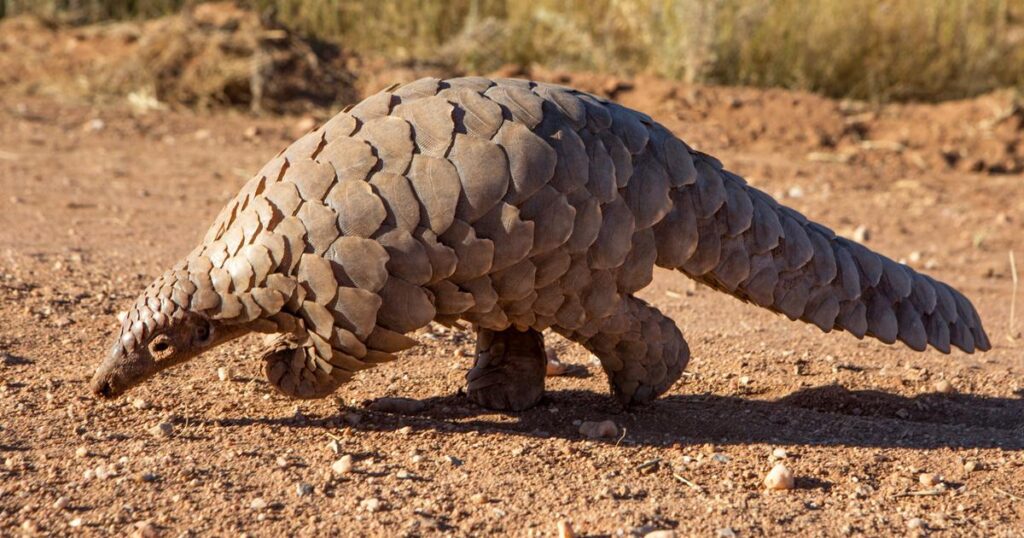Introduction: Africa’s Pangolins at a Crossroads
Across Africa, pangolins—remarkable mammals known for their distinctive scales—are facing an unprecedented survival challenge. Once widespread and relatively common, these shy creatures are now imperiled by soaring demand for their meat and scales in international markets. Often labeled as the most heavily trafficked mammals worldwide, pangolins are hunted relentlessly due to their perceived medicinal benefits and status as exotic delicacies. This article examines the multifaceted crisis surrounding African pangolins, highlighting the drivers behind their exploitation and spotlighting urgent conservation initiatives aimed at reversing this alarming decline. Each pangolin lost to illegal trade represents not only a blow to biodiversity but also a warning about humanity’s impact on fragile ecosystems.
The Pangolin Crisis: Unmasking the Toll of Illegal Demand
Pangolins have become prime targets in the global black market fueled largely by consumer demand in parts of Asia where their scales are prized for traditional remedies and their meat considered a luxury item. Recent studies estimate that over one million pangolins have been trafficked globally over the past decade alone—a staggering figure that underscores how rapidly wild populations are being depleted. This rampant poaching disrupts ecological balance since pangolins play vital roles controlling insect populations.
Beyond environmental consequences, this illicit trade carries significant public health risks. Pangolins can serve as intermediary hosts for zoonotic diseases capable of crossing into human populations—a concern underscored during recent viral outbreaks linked to wildlife markets. The illegal trafficking networks also undermine local economies dependent on sustainable natural resources while imposing heavy costs on healthcare systems combating emerging infectious diseases.
Innovative Conservation Approaches: Strengthening Protections Through Policy and Community Collaboration
In response to escalating threats against pangolins, African nations alongside international partners have adopted comprehensive strategies combining legal reforms with grassroots engagement. Enhanced legislation now imposes harsher penalties on poachers and traffickers while improving enforcement capabilities through specialized wildlife units equipped with modern technology such as drones and GPS tracking.
Equally important is empowering local communities who live alongside these animals. Conservation programs increasingly focus on education campaigns that reshape cultural attitudes toward pangolin consumption by emphasizing ecological importance rather than traditional beliefs about medicinal value. For example, community workshops in Ghana have successfully reduced hunting rates by promoting alternative income streams like beekeeping or sustainable agriculture.
Ecotourism initiatives also offer promising avenues; regions like South Africa’s Limpopo Province attract visitors eager to observe wildlife responsibly, providing economic incentives that discourage participation in illegal trade networks.
Raising Awareness & Fostering Sustainable Practices: Paving Paths Toward Recovery
Addressing the root causes of pangolin exploitation requires broad-based awareness efforts coupled with practical alternatives that reduce reliance on illicit products:
- Public Education Campaigns: Utilizing social media platforms alongside school programs helps disseminate knowledge about why protecting pangolins matters ecologically and economically.
- Supporting Local Artisans: Encouraging craftspeople to develop goods unrelated to wildlife products creates new livelihoods aligned with conservation goals.
- Influencer Advocacy: Engaging celebrities or respected figures amplifies messages urging consumers worldwide to reject illegally sourced animal parts.
Sustainable management frameworks complement these efforts through coordinated actions such as:
| Key Initiative | Description |
|---|---|
| Tougher Legal Enforcement | Introducing stricter laws paired with increased funding for anti-poaching patrols. |
| Community-Led Stewardship | Cultivating ownership among locals via participatory conservation projects. |
| Scientific Research & Monitoring | < td >Investing resources into population surveys using camera traps & genetic analysis tools.< / td >
